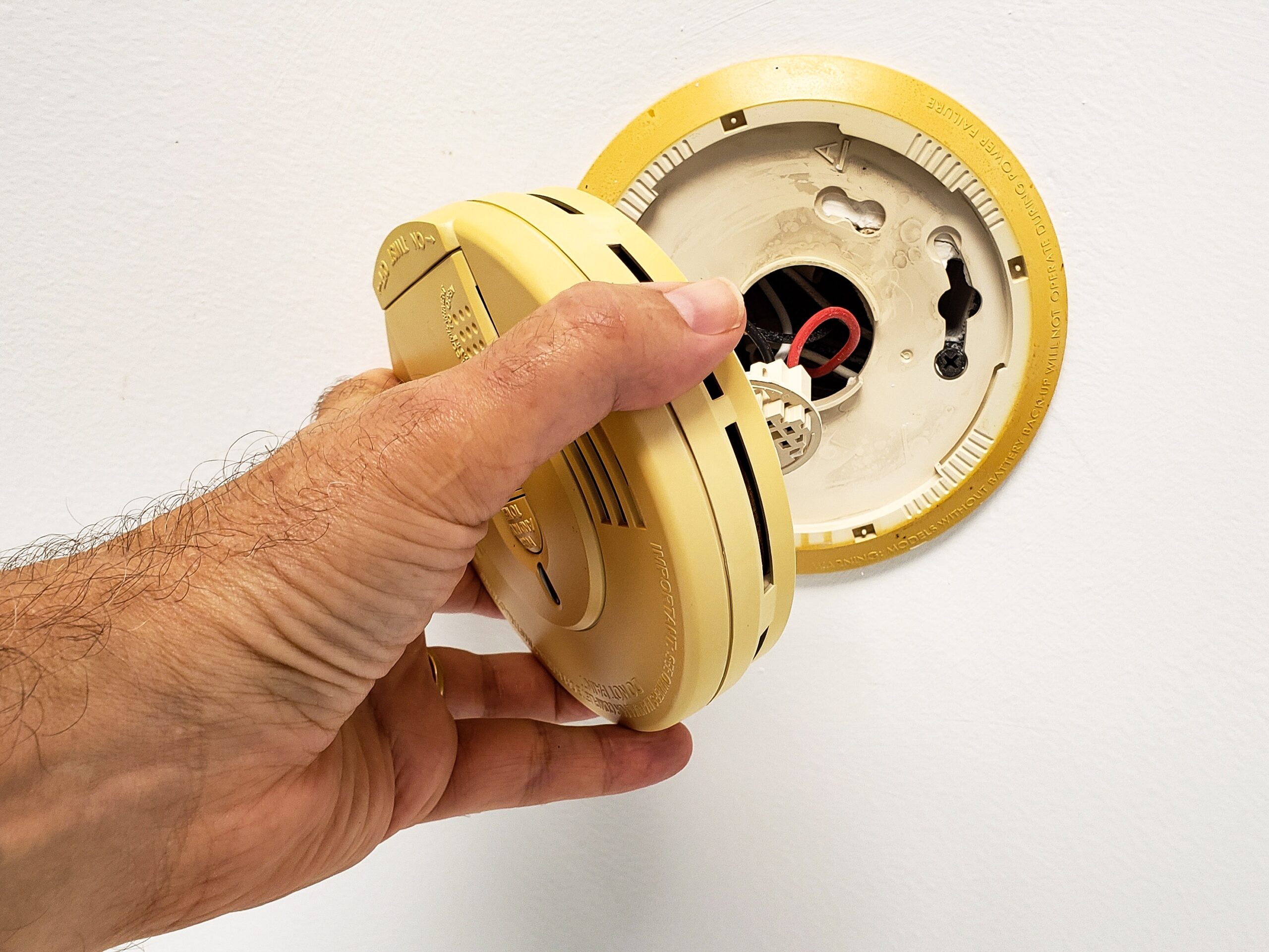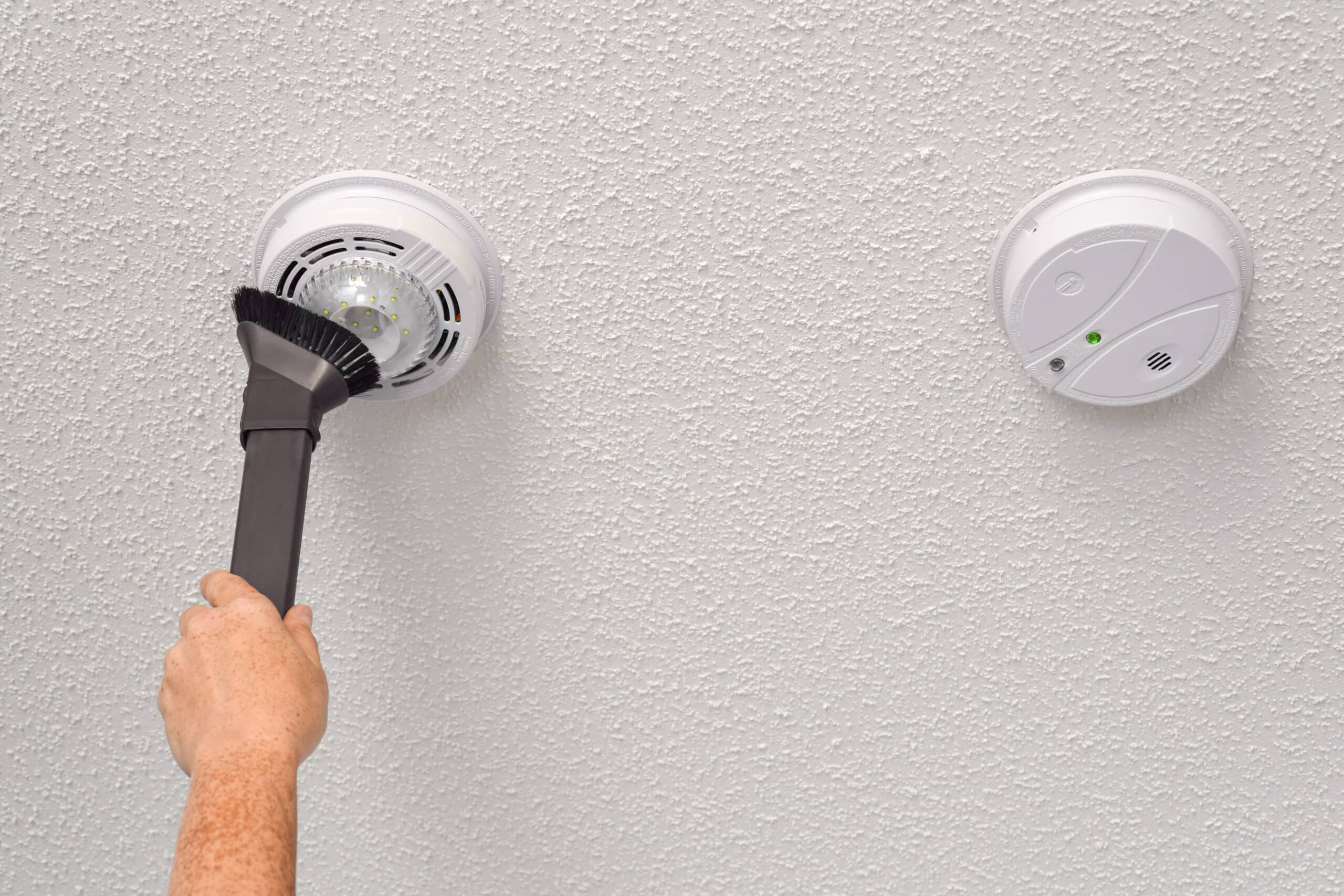Smoke Alarm Compliance Certificate QLD | Required or Just a Risk?
Get a Quote
It's quick and easy to get a quote.
Simply leave us your name, phone number and what you need quoted and one of our expert conveyancing solicitors will call you straight back.


Smoke alarm compliance certificate QLD often appears late in the selling process, but the issue behind it starts much earlier. Sellers are expected to ensure the property complies with current legislation, but they are not required to supply documentation unless the contract demands it. This creates a grey area where confusion and delays can happen.
The question usually comes up during contract preparation or review. Form 24, which is part of the title transfer process, asks the seller to confirm whether the smoke alarms are compliant. If the seller ticks yes, the agent, buyer, or conveyancer may ask for proof, especially if there is no certificate on file.
Many sellers discover the importance of this too late. Even when the alarms are fully compliant, the absence of paperwork can raise concerns and trigger additional checks, delays, or negotiation.
Here is how common sale scenarios typically play out:
| Scenario | Is a Certificate Usually Requested? | Reason |
| Standard sale with no special conditions | No | Compliance is assumed unless challenged |
| Buyer includes special condition | Yes | Required for contract to proceed |
| Pre-settlement inspection by buyer | Often | For buyer peace of mind |
| No paperwork provided | Sometimes | Agent or buyer may seek confirmation |
In short, the certificate is rarely required outright, but the expectation can arise quickly if questions are asked. Sellers who prepare early can avoid unnecessary stress during settlement.

What Smoke Alarm Compliance Certificate QLD Proves and Who Issues It
Smoke alarm compliance certificate QLD is often treated as a formality, but it serves a clear and useful purpose when a sale is underway. It shows that the property has been inspected by a qualified professional and that the smoke alarms meet all legislative requirements in Queensland.
While there is no legal obligation for the seller to provide a certificate by default, many buyers and agents use it as a form of assurance. It becomes necessary if a special clause is included in the contract or if the buyer requests written evidence as part of their due diligence.
The person issuing the certificate must be appropriately qualified. The right certifier depends on the type of smoke alarm system installed in the home. Queensland law draws a distinction between hardwired and battery-powered systems, and not all professionals are authorised to assess both.
Here is a simple breakdown of who can issue what:
Licensed Electrician
- Required for hardwired systems
- Can carry out repairs or upgrades during the inspection
- Permitted to issue compliance certification involving electrical work
Qualified Smoke Alarm Technician
- Appropriate for battery-powered or wireless systems
- Can confirm proper installation, type, and positioning of alarms
- Issues a written compliance report when standards are met
Before relying on any documentation, it is essential that the professional holds the correct licence and understands the specific requirements under Queensland legislation. The certificate is only as reliable as the inspection behind it.

What the REIQ Contract Really Says About Compliance
The REIQ residential contract used in most Queensland property transactions includes a clear section on smoke alarm compliance. This is often where questions begin to surface, especially as the settlement date approaches.
Sellers are required to indicate whether compliant smoke alarms are installed on the property. This declaration is made at the time the contract is signed and is based on the seller’s understanding of the property’s condition. There is no automatic requirement to provide a smoke alarm compliance certificate unless the contract includes a special clause asking for one.
Clause 7.8 of the standard contract outlines the consequences if the seller’s declaration is incorrect. If the property is found to be non-compliant by the time of settlement, the buyer may be entitled to a small financial adjustment. However, the buyer cannot cancel the contract for this reason alone.
To help clarify how these obligations play out, the table below outlines the key compliance points and their potential outcomes:
REIQ Contract Compliance Triggers
| Obligation | What Triggers It | What Happens if Missed |
| Seller declares compliance | At contract signing | Buyer may claim 0.15% reduction in writing |
| Seller fails to meet the law | By settlement date | No termination right, but deduction can apply |
| Certificate not provided | Only if contract demands it | Seller must arrange proof before settlement |
Understanding how the contract works gives both sellers and buyers a clearer path forward. When compliance is confirmed early and expectations are aligned with the contract terms, there is less chance of unexpected penalties or delays.
How to Avoid Last-Minute Issues in Your Townsville Sale
When smoke alarm compliance is left until the final stages of a property sale, even minor oversights can cause delays. In Townsville, where many transactions follow a familiar pace but differ in detail, preparation is the simplest way to avoid setbacks at the point where timelines matter most.
Inspections should be scheduled well in advance, particularly if the alarm system may require upgrading. Waiting until the buyer’s pre-settlement checks or relying on outdated records can place unnecessary pressure on both parties.
Once you have confirmed that your alarms meet current Queensland requirements, inform your solicitor or conveyancer immediately. This allows them to prepare Form 24 accurately and ensures that any requests from the buyer or agent can be addressed without delay.
Here is a quick checklist to stay on track:
- Arrange a professional inspection early in the process
- Complete any necessary upgrades promptly
- Notify your conveyancer once compliance is verified
- Keep the compliance document on file for quick reference
- Seek clarification if any part of the process is unclear
If you are unsure about your property’s current compliance status or how to respond to a buyer’s request, the team at Townsville Conveyancing can help you review the details and plan your next step with confidence.
